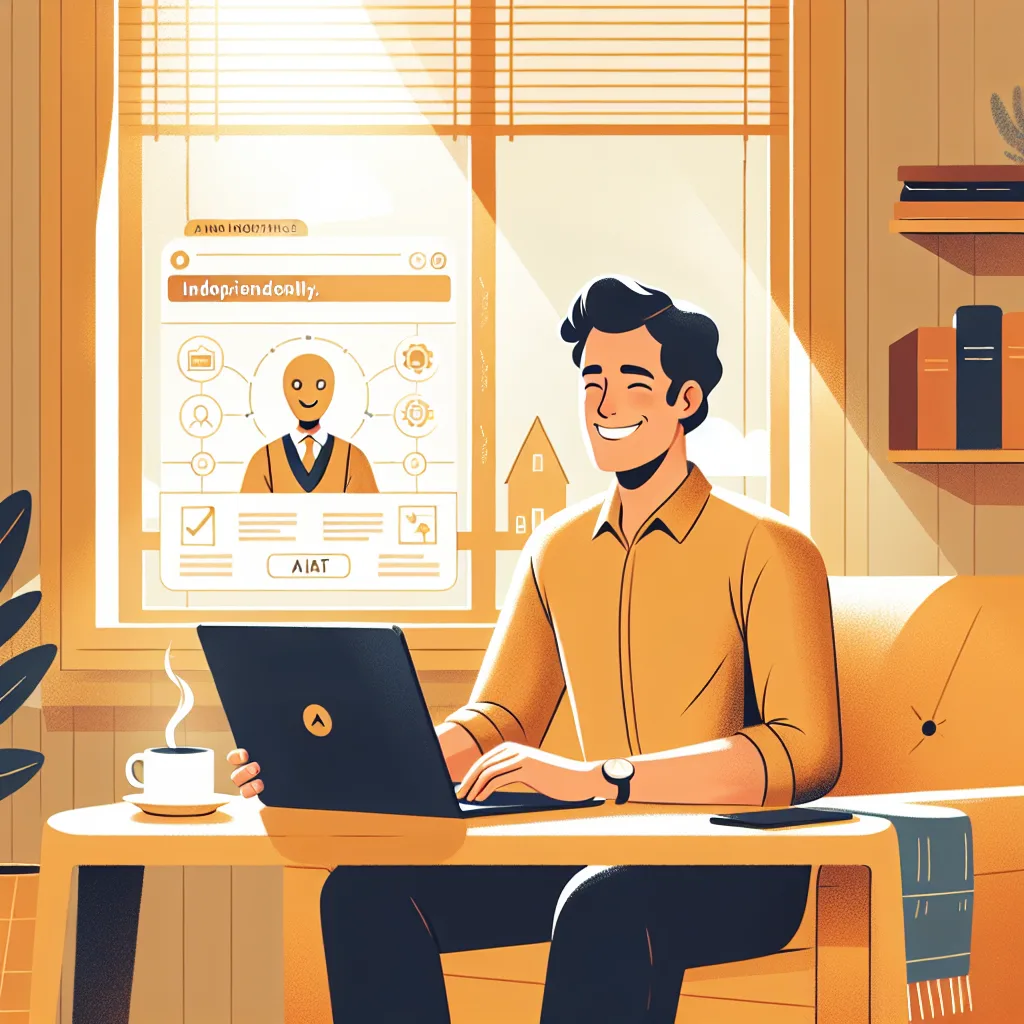It’s the big question about the future of work AI. Turns out, most of us are too busy enjoying the perks to worry.
It’s a strange feeling, isn’t it? There’s this low hum of anxiety in the professional world that AI is coming for our jobs. Yet, at the same time, many of us are actively using it every single day and finding… relief? It’s a paradox that gets right to the heart of the future of work AI. Recent data suggests a fascinating trend: a majority of white-collar workers believe their roles could be automated within a few years, but they’re too busy enjoying the lower stress levels to be overly concerned. It seems our new robot assistants are making our lives easier, and we’re not complaining.
This isn’t just a hunch; the numbers back it up. A recent survey found that around 60% of tech and office workers see AI as capable of replacing not just their job, but their entire team’s function, within the next three to five years. You’d think this would cause widespread panic, a frantic rush to upskill or change careers. But that’s not what’s happening. Instead, the daily reality is that AI is becoming a pretty great coworker. It’s the one who happily takes on the tasks nobody wants, freeing up our brainpower for things that require actual human thought.
The Surprising Calm About the Future of Work AI
So, why the calm acceptance? It boils down to the type of work AI is doing. Think about the most draining parts of your job. Is it the creative problem-solving or collaborating with your team? Probably not. It’s more likely the tedious, repetitive tasks—pulling data for a weekly report, transcribing meeting notes, or sorting through hundreds of emails.
AI tools are getting incredibly good at handling exactly that. Instead of spending two hours on a Monday morning wrestling with a spreadsheet, you can ask an AI to summarize the data and highlight key trends in seconds. That’s not a threat; it’s a productivity boost that gives you back time and mental energy. This shift allows us to focus on the more strategic, creative, and fulfilling aspects of our jobs—the very things that make us human and valuable in the first place. We’re not being replaced; we’re being relieved of the mundane.
Gen-Z Is Already on Board
This trend is especially appealing to the younger generation entering the workforce. Gen-Z has been vocal about their desire for more than just a paycheck. They prioritize work-life balance, purpose-driven work, and flexibility. The old-school model of grinding through repetitive tasks just to prove you’re working hard doesn’t resonate.
For them, the future of work AI isn’t a scary unknown—it’s a welcome benefit. Why would you spend hours on a task that a machine can do in a minute? Adopting AI in the workplace allows them to bypass the boring stuff and jump straight to the impactful projects. This isn’t about being lazy; it’s about being efficient and focusing on what truly matters. Businesses that embrace this will likely have a much easier time attracting and retaining young talent.
What a Shorter Workweek Could Mean for the Future of Work AI
This all leads to a much bigger, more exciting conversation. If AI can automate a significant chunk of our daily tasks, what does that mean for the structure of work itself? Some of the biggest names in tech and finance are already placing their bets.
Microsoft co-founder Bill Gates has suggested that AI could become so efficient that a three-day workweek becomes entirely possible. He envisions a future where machines handle most of the production and people are free to work less without a loss in productivity. Similarly, JPMorgan Chase CEO Jamie Dimon predicted that the next generation will likely only work three-and-a-half days a week thanks to AI’s influence.
This isn’t a dystopian vision of mass unemployment. It’s a hopeful one about a more balanced life. According to a recent Fortune report, this shift toward flexibility is already gaining traction. The idea is that we could have the same (or even greater) output in less time, leaving more room for family, hobbies, and personal growth.
The conversation is shifting from “Will a robot take my job?” to “How can a robot make my job better?” For now, the answer seems to be by giving us a break. And maybe, just maybe, a three or four-day weekend is on the horizon. What would you do with the extra time?
